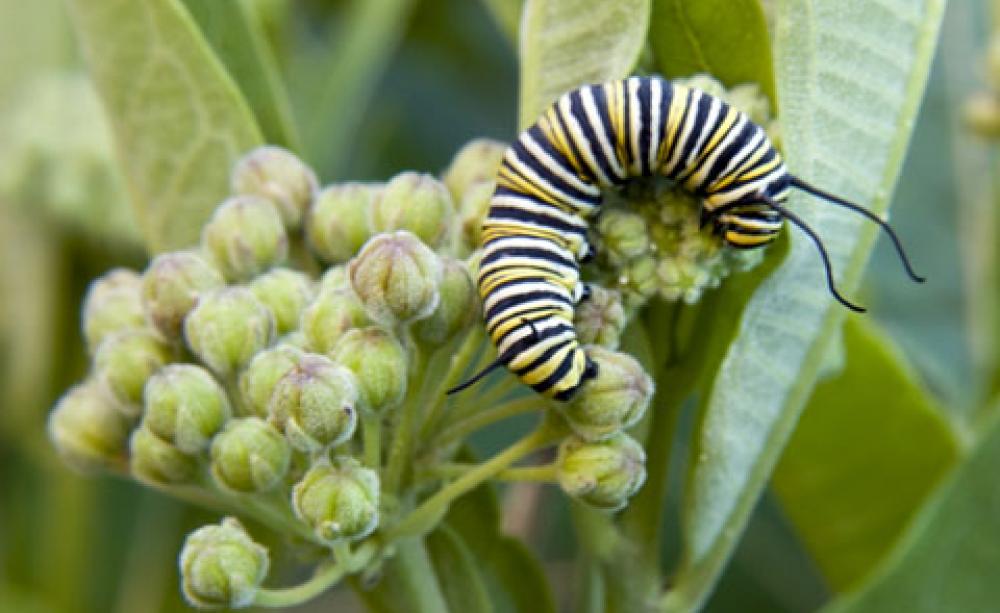Paterson focuses on what might someday be achieved rather than the scientific barriers to that achievement
In his recent speech at Rothamsted Research, Defra Secretary of State Owen Paterson called on Europe to speed up the approval of GM crops to give UK farmers access to the technology and begin a new agricultural revolution.
Paterson's thesis is that GM crops can reduce pesticide and fertiliser use, bring higher yields and lower costs. According to Mr Paterson they bring "a wealth of benefits" to people, the environment and the economy.
He blames the EU's precautionary approach to GM for delaying the march of GM herbicide tolerant (GMHT) and insect resistant crops across EU farmland, and says he is keen that decisions on approvals should be science based.
This is where his argument starts to look shaky. Somehow during the last 9 years he and his officials seem to have forgotten that in 2004 the UK government announced it would not approve GMHT oilseed rape and beet because the four-year Field Scale Evaluations (FSE) found they were more harmful to wildlife than the conventional weed control in these crops.
The FSE scientists found that the GM weed control regime caused a significant decrease in weed cover and weed seed production and there would be knock-on effect for insects and farmland birds, which need the weeds and their seeds for food and shelter.
In the years since the UK decision GMHT crops have not been approved in the EU despite numerous attempts and several pending applications because of concerns about their safety and environmental impact.
In the meantime, the emerging evidence of the harm caused by, and unsustainable nature of, GMHT crops grown in the Americas retrospectively backs up the UK's decision to say "no" - and reinforces Europe's precautionary stance. Monsanto's Roundup Ready (RR) soya dominates the North and South American seed markets to the extent that in Argentina and the US it is now very hard for farmers to buy non-GM soya varieties.
These GM crops were designed to use Roundup as the primary, or only, means of weed control, and in the early stages this enabled farmers to achieve a very high level of weed control. In the US Midwest soya and maize belt GM HT crops, led to the virtual elimination of Milkweed from arable fields. Milkweed is the main food plant for Monarch butterfly larvae, and its removal from RR soya and maize crops started a fifteen year decline in the population of this iconic species. Unfortunately, the US never bothered with FSE type trials before approving RR crops, which would have helped predict what has happened to the Monarch population.
Paterson focuses on what might someday be achieved rather than the scientific barriers to that achievement
Eventually overreliance on Roundup has also resulted in the very rapid growth in weed numbers and species resistant to glyphosate, the active ingredient in Roundup. Now farmers growing RR crops are offered a menu of seven different herbicides to use with it to prevent the resistance problem getting worse. Herbicide use is increasing under GM, not declining.
During the period of rapid resistance development from 2003-11 the USDA and two state universities conducted a long-term trial comparing yields and chemical use in two-, three- and four-year crop rotations. The results of the trial showed that the four-year non-GM rotation (which received manure), reduced fertiliser use by 83%, herbicide use by 87%, resulted in higher yields of maize and soya and reduced fossil fuel use by 49%, compared to the two year GM rotation of maize and soya. This four-year non-GM rotation produced similar profits to the GM system, but it employed more people and resulted in a massive reduction in water pollution.
Paterson's speech paid little attention to such research. Defra are cherry picking their science to fit their agenda. Paterson seized upon the potential for GM to produce drought tolerant maize, but conveniently forgot, or doesn't realise, that non-GM drought tolerant varieties are already available. The advantage of the non-GM approach is that no one holds patents on the genes involved, so others can use them to breed more varieties. Paterson praised experimental GM blight resistant potatoes, but forgot to mention the conventionally-bred varieties already sold by the UK's own Sárvári Research Trust.
Almost inevitably Paterson mentioned the Holy Grail of GM scientists - nitrogen fixing cereals. His assumption is that it will happen someday, but there are serious scientific doubts about this. The biggest problem is that to genetically modify such plants, nitrogen fixing bacterium must be coerced to behave symbiotically in cereals (as they do in clover).
This is far beyond what genetic engineers have achieved so far. Even natural evolutionary processes have failed to produce any nitrogen fixing grasses. The reason for this may lie in the fact that converting atmospheric nitrogen into nitrate is an energy intensive process and puts a big demand on the plant's resources. In cereals this is likely to affect yield of grain. The answer is to put money into optimising the benefits of nitrogen fixing crops in arable rotations.
Paterson also ignores the evidence that according to the UK's Home Grown Cereals Authority problems such as poor soil structure, mineral deficiency and short rotations are reducing the potential yields of current cereal varieties. There was no acknowledgement in the Paterson speech that these could be addressed by the sort of agronomy crops used in the US's rotation trials.
As with commercial GM proponents, Paterson focuses on what might someday be achieved rather than the scientific barriers to that achievement. He blames the public for failing to recognise that GM crops are "safe and beneficial", but it is unclear how he intends to overcome the lack of markets for GM crops in Europe, which has caused Monsanto, BASF, Bayer and Syngenta all to concentrate on non-GM aspects of their businesses here.
It is equally unclear how Paterson thinks it will be possible for the UK to "go it alone" on GM when we have signed up to the EU's regulatory system that has so far prevented the adoption of GMHT crops. If the UK were to produce GM crops how would this impact upon our export to Europe when consumer opposition to GM is high in many countries? Mr Paterson's arguments have failed to convince the Scottish and Welsh governments that they should abandon their opposition to GM crops, so how he will convince the EU remains a mystery.
The main reason for Paterson's promotion of GM crops appears to be his belief that it's needed to build the UK's high tech exports, which will be set out shortly in the Government's Agri-Tech Strategy. Mr Paterson appears blinded by technology and fails to address the real needs of farmers, consumers and the planet.
If Mr Paterson's wants a food system that serves the needs of everyone he needs to listen instead of trying to buck the market by forcing through GM crops.
Pete Riley is campaign director at GM Freeze
Image of Monarch larvae courtesy of www.shutterstock.com
| READ MORE... | |
 |
NEWS ANALYSIS UK supermarkets renege on anti-GM stance As three more supermarkets drop their bans, the industry is accused of caving in to cartels and GM food giants |
 |
COMMENT UK needs scientific research into agroecology not GM The greatest challenge facing agricultural scientists is how to work with farmers producing more ecological and healthier food - not GM, argues Patrick Mulvany, chair of the UK Food Group and advisor to Practical Action |
 |
NEWS ANALYSIS The GM lobby and its 'seven sins against science' The pro-GM lobby has sought to take the 'scientific high-ground' by positioning itself as the voice of reason and progress, while painting its opponents as unsophisticated 'anti-science' luddites. In a scathing response Peter Melchett turns the tables |
 |
SPECIAL CONTENT TAKE ACTION: Just Label It - Americans demand GM food labelling Join the growing chorus of individuals and organisations demanding the right to know what's in their food... all GM foods should be labelled, say Just Label It campaigners |
 |
NEWS ANALYSIS Does Kenya need GM crops as it battles famine in the Horn of Africa? In the midst of a dire need to feed millions of people facing hunger because of drought, Kenya's newly passed Biosafety Act allows for the importation of GM crops - but at what cost? |






